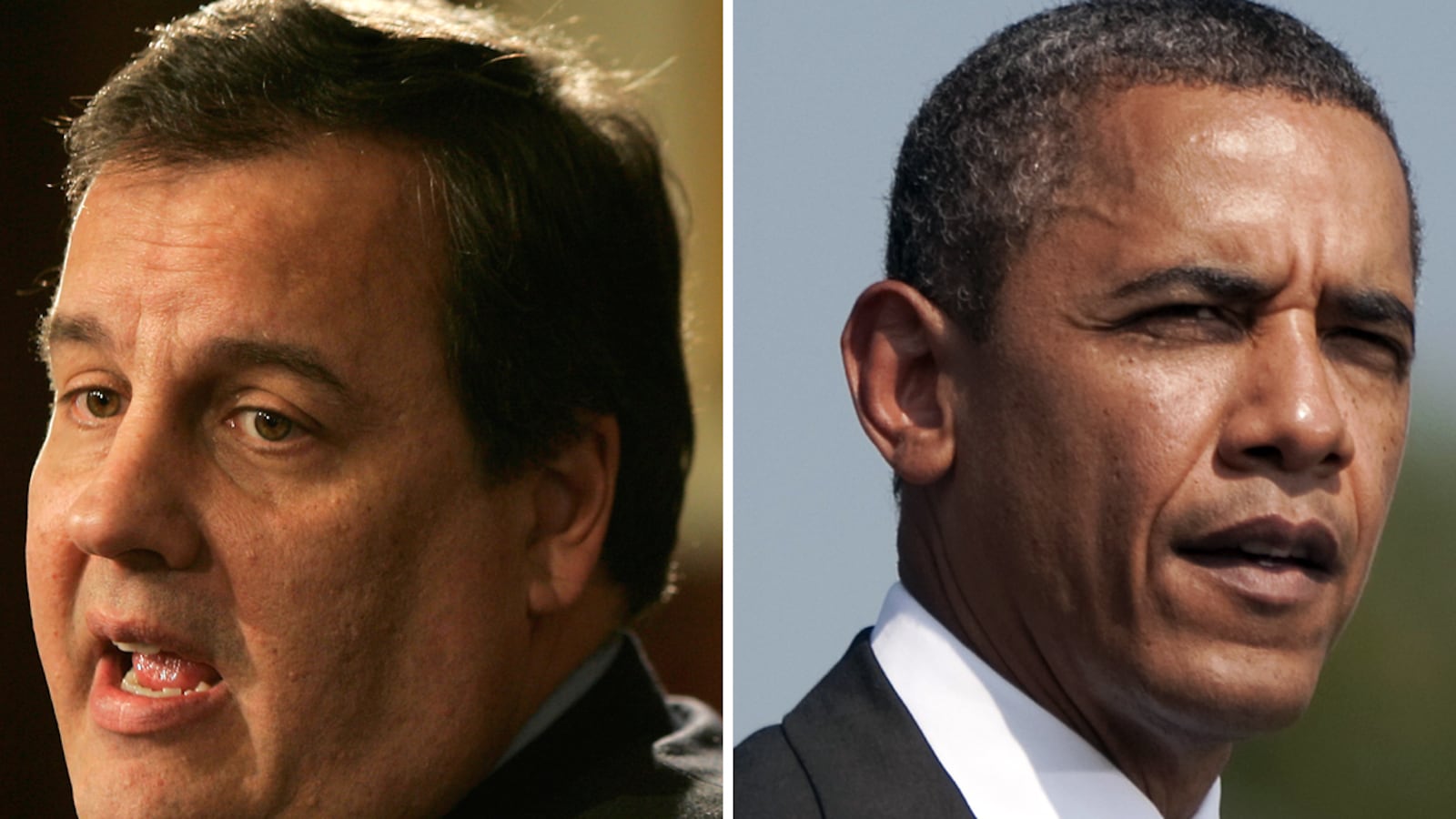What is it about fat that turns otherwise smart people into complacent fools? No, this isn’t a new discovery about the supposed health risks of obesity: it’s an observation about how the sight of a fat body can transform people like Michael Kinsley and Eugene Robinson—writers whose work I usually admire—into bigoted know-nothings, spouting absurd prejudices they would mock if they were aimed at almost any group other than fat people.
Kinsley’s and Robinson’s pieces on why Chris Christie should be required to go on a diet if he wants to run for president read like over-the-top parodies, ginned up by someone arguing that our national freakout over fat is largely a product of elite anxieties about all sorts of overconsumption. That someone would be me. When I read Kinsley’s claim that “the symbolism of Christie’s weight problem goes way past the issue of obesity itself” because “it is just a too-perfect symbol of our country at the moment, with appetites out of control and discipline near zilch,” I almost feel as if I bribed him to write those words. (Kinsley’s claim that Christie’s supposedly unhealthy lifestyle habits disqualify him from presidential consideration is especially obnoxious, given that three years ago he argued that Barack Obama's "steely calm is now one of our country's major assets. If he needs an occasional cigarette to preserve it, let's hand him an ashtray, offer him a light and look the other way.” That we might not want a president obsessing about his waistline rather than the nation’s problems doesn’t seem to have occurred to him.)

Kinsley’s and Robinson’s attacks on Christie come down to the claim that fat people choose to be fat, and could choose to be thin if they were more self-disciplined and had better lifestyle habits. Robinson advises Christie to “eat a salad and take a walk,” while Kinsley believes Christie should be disqualified from running for president until “he goes on a diet and shows he can stick to it.”
This is utter nonsense, which these two writers would recognize as such if someone were to apply their reasoning to almost any other social issue, such as poverty. What would these two double-plus good-thinking liberals say to the claim that poor people choose to be poor, and could choose to be rich if they were more self-disciplined and had better lifestyles? My guess is they would say that’s a ridiculous oversimplification, and one that is ultimately harmful to the cause of social justice. And they would be right.
Here’s my question for people like Kinsley and Robinson: what evidence do they have that, in America today, it’s more realistic for a fat person to “choose” to become thin than it is for a poor person to “choose” to become rich? If anything, it’s statistically rarer for a fat person to maintain significant long-term weight loss than it is for a poor person to achieve affluence.
But, Kinsley and Robinson might reply, everybody knows how fat people can become thin: by exercising more and eating less (“eat a salad and take a walk”). Guess what, everybody also knows how poor people can become rich: by working harder and investing the proceeds of harder work wisely. Would the latter observation strike Kinsley and Robison, given the cultural and economic realities of contemporary American life, as ridiculously simplistic? I’m sure it would—if only because they both have IQs in triple digits.
Indeed, it’s easy to imagine what these writers think of the argument that, in America today, the rich are rich because they work hard and spend their money wisely, while the poor are poor because they’re indolent slackers who squander their income on self-indulgence. Yet this argument, which is so self-evidently ludicrous to liberals when it’s used to blame the poor for being poor, is something that many of these same people swallow whole when it’s time to blame fat people for being fat.
Mike Kinsley, I suspect, would be the first to decry the idea that he’s part of the American upper class because he works so much harder than the maid who gets $10 an hour to clean the bathrooms of the hotel he stays in when he jets about the country living the life of a well-compensated pundit. How plausible would he find the theory that this maid could, through “a determined and disciplined effort,” trade her present job for that of being paid big bucks to toss off 800 words of malignant folk wisdom masquerading as thoughtful commentary while sipping her morning espresso?
The scientific literature demonstrates over and over again why the “determined and disciplined efforts” to lose weight that Kinsley recommends almost always fail (a good recent nontechnical summary of that evidence can be found in Gina Kolata’s book Rethinking Thin). The human body is extraordinarily good at defending against weight loss, as Christie, like so many other people, has discovered in the course of his many futile attempts to lose weight by doing exactly what Kinsley and Robinson recommend he do.
In other words, Chris Christie is a fat man in an even deeper sense than the sense in which a poor person is poor. As a practical matter, to say Christie is fat is hardly any different from observing that Barack Obama is African-American—which is to say it’s part of his identity, whether he wants it to be or not. Telling him he shouldn’t run for president as long as he’s fat is tantamount to telling a black man he shouldn’t run for president until he’s white.






